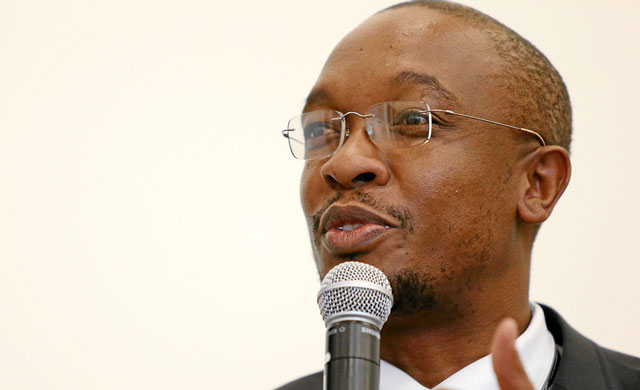
Johannesburg plans to use turbines to harness electricity from the city’s water reticulation infrastructure, executive mayor Parks Tau announced on Wednesday.
The mayor made the announcement in his state of the city address, which included plans to deploy more Wi-Fi across the city and use technology in other ways to speed service delivery.
One of the key projects is “harnessing energy from the water flowing through our pipe system citywide using in-pipe turbines”, Tau announced.
There are significant volumes of water flowing through the city’s pipes and harnessing these to produce hydroelectric power is one way the city hopes to mitigate against the Eskom crisis gripping South Africa.
Tau didn’t provide much further detail on how the city intends using water to generate power, or how much electricity will flow from the project, but one way is by inserting turbines into the water pipes.
As the water flows through, it spins the turbines. Each turbine is connected to a generator on the outside of the pipe. The presence of the turbines does not hamper the flow of the water significantly and so shouldn’t affect the pipeline’s efficiency.
Portland in the US is one city that has already deployed the technology. It’s using the LucidPipe Power System from a company called Lucid Energy. LucidPipe explains that it replaces stretches of existing gravity-fed conventional pipeline used for transporting potable water. In this way, it is able to feed 1,1GWh of energy into the Portland system each year, or enough to power about 150 homes.
Tau said in his address that Johannesburg is already using smart meters to switch off those consuming large amounts of electricity, reducing power from the grid by 25% during load shedding.
Another initiative involves “diverting organic waste to bio-digesters in order to harvest gas for fuel and energy”.
The mayor also announced the launch of a digital ambassadors programme, under which 3 000 young people will provide digital literacy training at a number of free public Wi-Fi hotspots.
He promised to “blanket Braamfontein with Wi-Fi” providing high-speed broadband access. The area, near the city’s central business district, is heavily populated by students who will benefit from the free access.
“In this mecca of youthful activity, the Wi-Fi mesh will become a showcase for how subsidised access to the Internet means access to opportunity and education,” Tau said.
He said the initiative goes further than merely providing digital access. The city’s libraries division is offering massive open online courses. The programme currently has 40 students enrolled and it will be expanded across the metro to provide youngsters with “recognised online courses” from institutions such as the Wharton Business School, Rice University, the University of Adelaide and the Massachusetts Institute of Technology.
These programmes are being rolled out in conjunction with a number of digital initiatives that the city already offers, including the Tshimologong precinct, developed in partnership with Wits University as an area dedicated to digital start-ups. — © 2015 NewsCentral Media




